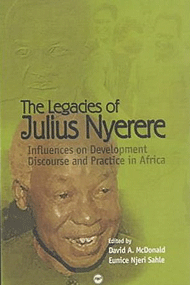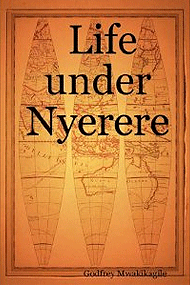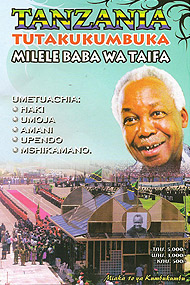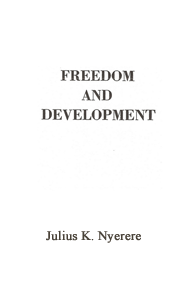Nyerere and Africa: End of an Era: Biography of Julius Kambarage Nyerere (1922-1999)
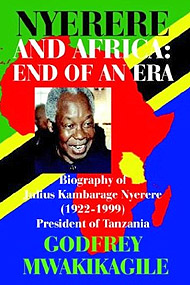
Author: Godfrey Mwakikagile
Paperback: 472 pages
Publisher: Protea Publishing Company (November 2002)
Language: English
ISBN-10: 1931768749
ISBN-13: 978-1931768740
Dimensions: 9.1 x 6.2 x 1.2 inches
Book Description:
This work looks at the legacy of the late President Julius Nyerere of Tanzania, one of the world's most influential leaders and Africa's most revered statesman besides Nelson Mandela. One of the first books written after his death but probably the most comprehensive to date, it is also a critical study of some of Nyerere's major policy initiatives in a Pan-African context, including events in which he played the most prominent role influencing the course of African history. As Professor Ali Mazrui described Nyerere: "In global terms, he was one of the giants of the 20th century....He did bestride this narrow world like an African colossus."
<a href="https://www.amazon.com/Nyerere-Africa-Biography-Kambarage-1922-1999/dp/1931768749" title="Amazon">Amazon</a>

